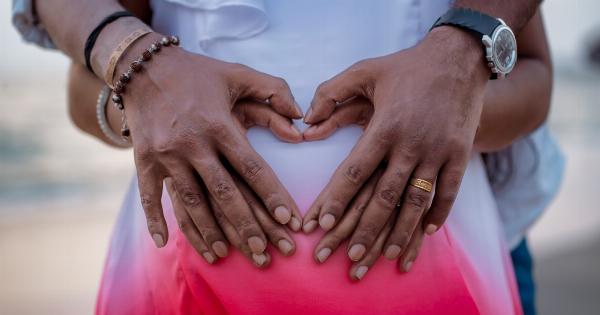Pregnancy is a beautiful journey, but it also comes with its own set of challenges. One of these challenges is anemia, which is a condition where the body lacks enough healthy red blood cells to carry oxygen to the body’s tissues.
Anemia is quite common in pregnant women and can affect both the mother and the baby. In this article, we will provide a complete guide to anemia in pregnancy.
What Causes Anemia in Pregnancy?
Anemia in pregnancy is usually caused by a lack of iron, which is essential for the production of red blood cells. During pregnancy, the amount of blood in a woman’s body increases to support the growing fetus.
This means that the demand for iron also increases, but sometimes the body cannot produce enough red blood cells to meet this demand.
Other causes of anemia in pregnancy include a lack of vitamin B12 and folic acid, blood loss during delivery, and other medical conditions such as sickle cell anemia.
Symptoms of Anemia in Pregnancy
It is quite common for pregnant women to feel fatigued, but if you have anemia, this fatigue will be more severe and can be accompanied by other symptoms such as:.
- Dizziness
- Shortness of breath
- Rapid heartbeat
- Cold hands and feet
- Pale skin and lips
- Low blood pressure
Diagnosis
Anemia in pregnancy is usually diagnosed during routine blood tests. Your doctor will perform a complete blood count (CBC) which measures the number of red blood cells, white blood cells, and platelets in your blood.
If your CBC shows that you have low levels of red blood cells, your doctor will check your iron levels to determine if you have iron deficiency anemia.
Treatment for Anemia in Pregnancy
If your anemia is caused by a lack of iron, your doctor will likely recommend an iron supplement. Iron supplements are available over-the-counter and come in two forms: ferrous sulfate and ferrous gluconate.
Your doctor will prescribe the appropriate dose for your needs.
Eating an iron-rich diet can also help to prevent and treat anemia in pregnancy. Foods that are high in iron include red meat, poultry, fish, beans, lentils, and dark leafy greens.
If your anemia is caused by a lack of vitamin B12 or folic acid, your doctor may recommend supplements or a change in your diet.
Blood transfusions are rarely needed for anemia in pregnancy, but in severe cases, your doctor may recommend this treatment.
Prevention
Preventing anemia in pregnancy starts with a healthy diet. Women who are pregnant need approximately 27 mg of iron per day. Eating a diet that includes iron-rich foods can help prevent anemia. Foods that are high in iron include:.
- Red meat, such as beef and lamb
- Pork
- Poultry
- Fish
- Beans and lentils
- Dark leafy greens, such as spinach and kale
- Iron-fortified cereals and bread
It is also important to eat foods that are high in vitamin C, which helps the body to absorb iron. Foods that are high in vitamin C include oranges, grapefruits, strawberries, kiwis, and tomatoes.
Taking prenatal vitamins can also help prevent anemia in pregnancy. Prenatal vitamins contain essential nutrients like iron, folic acid, and vitamin B12 that help support a healthy pregnancy.
Complications
If anemia in pregnancy is left untreated, it can lead to complications such as:.
- Preterm delivery
- Low birth weight
- Postpartum depression
- Blood transfusions
- Heart problems in the baby
- Delayed growth and development in the baby
When to See a Doctor
If you are pregnant and experiencing symptoms of anemia, such as fatigue and dizziness, you should see your doctor. Anemia can be easily diagnosed and treated with proper care.
Conclusion
Anemia in pregnancy is a common condition that can be easily prevented and treated. Eating an iron-rich diet, taking prenatal vitamins, and getting routine blood tests can help to prevent anemia.
If you are experiencing symptoms of anemia, it is important to see your doctor and get proper treatment to avoid complications.































